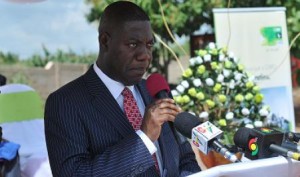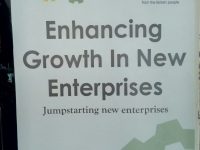 The Managing Director of Agricultural Development Bank (ADB), Steven Kpordzih, has said the bank is adequately prepared to list on the Ghana Stock Exchange (GSE) through an Initial Public Offering (IPO) to raise additional capital.
The Managing Director of Agricultural Development Bank (ADB), Steven Kpordzih, has said the bank is adequately prepared to list on the Ghana Stock Exchange (GSE) through an Initial Public Offering (IPO) to raise additional capital.
Cabinet earlier this year gave approval for ADB to list on the GSE to raise additional capital and as part of a restructuring programme for the Bank of Ghana (BOG) — the industry regulator — to exit as a player from an industry it regulates.
The issuance of the IPO, according to Mr. Kpordzih, will give Ghanaians a sense of ownership and expand the shareholder base of the bank.
“We are determined to remain an indigenous institution, hence our choice to go to GSE to raise additional capital. It is our expectation that Ghanaians will embrace the Initial Public Offering (IPO) when the eventual announcement is made.”
ADB is however yet to state how much it aims to raise through the IPO.
The Ministry of Finance holds 52 percent of the bank, with the rest held by the BoG through a trustee. The Central Bank has often been criticised for owning part of an entity it regulates — a situation that critics, among them the International Monetary Fund, say creates a conflict of interest situation and fuels perceptions of favouritism.
Mr. Kpordzih said the bank is committed to undertaking a major refurbishment exercise gradually in all its branches, and also moving the head office by early 2015 to the Accra Financial Service Centre, which is under construction.
He said this at the official opening of the Tema Meridian Model Branch, which comes as the third model branch after the Ejisu Model Branch in the Ashanti Region and Dansoman Model Branch in Greater Accra Region.
He said the idea of these model branches is to make customers and clients proud of their association with ADB, and also give first-class services and convenience to customers wherever they find the bank’s branches.
“This will also go a long way in transforming the corporate identity and brand of the bank as well as ensuring that we improve on all the aspects of our business operations, and also strengthen relationships with our customers and matching that with our new identity.
“I encourage new customers, most especially businesses involved in the agric sector, to talk to us and come do business with ADB,” he added.
ADB has the third-largest branch network and prides itself on being a bank dedicated to financing agriculture, but concerns have been raised about whether its current structure and operations give the needed thrust to the agricultural sector, with many commentators asking for the bank to be repositioned to upscale its agriculture business.
Ghana’s agricultural sector employs approximately 42 percent of the working population, according to census data. The sector is often said to be growing below potential, with farmers facing perennial problems such as the unavailability of modern equipment, erratic rainfall, and expensive credit.
ADB is the eighth-largest bank in Ghana by assets and the second-biggest of the three banks — including GCB and National Investment Bank — in which the state has a significant stake.
The bank is the ninth-largest by size of loans in an industry of 27 banks. In 2013, its loan book expanded by 11 percent to Ghc0.9billion and the bank registered pre-tax earnings of Ghc84million. The equity in the bank stood at Ghc281million in 2013.




